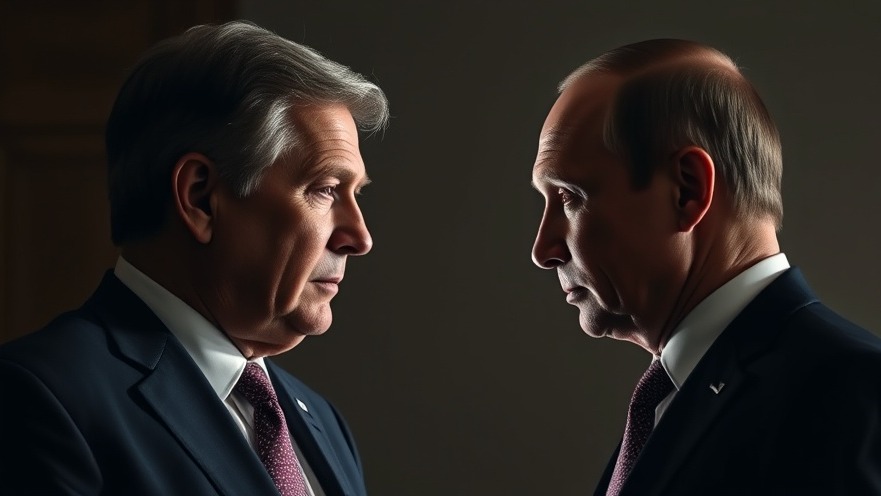
Understanding Russia's Shifting Alliances: A Cautionary Tale
In recent discussions among U.S. political leaders, a pointed warning has emerged regarding nations considering alliances with Russia. This warning, articulated by Senator John Kennedy, underlines a crucial observation: Russia's track record of unreliable partnerships serves as a stark lesson for other countries. Following the time-honored adage, 'With friends like this, who needs enemies?' Kennedy articulated the unpredictability of Russian support, especially in the context of its dealings with nations like Iran.
In John Kennedy Issues Blunt Warning To Any Nation Thinking They Should Partner With Russia, the discussion dives into Russia’s shifting alliances, exploring key insights that sparked deeper analysis on our end.
The Reality of Russian Support for Allies
Russia and Iran have maintained a complicated relationship, often defined by mutual benefit. However, recent events reflect a clear withdrawal of Russian support at critical moments. Kennedy highlighted that, despite a long-standing partnership where Iran sent military resources to aid Putin's ambitions in Ukraine, Russia has left Tehran wanting. Just this week, Iranian diplomats approached Putin asking for military assistance in response to escalated regional tensions, only to be met with silence.
This pattern is not unique to Iran. Historical failures to uphold commitments to allies raise questions about the reliability of Russian partnerships. During conflicts in regions like Syria and Armenia, Russia has consistently put its own interests first, often abandoning its allies when they most need assistance.
Why The World Should Pay Attention
As nations globally navigate a complex geopolitical landscape, the messages from U.S. leaders like Kennedy carry weight. The implications of aligning with a power known for its fickle support are significant, particularly for countries in vulnerable positions seeking strong allies against external threats.
Understanding these dynamics is vital for any country weighing the pros and cons of partnership with Russia. Kennedy's observation is not merely a critique; it is a precisely crafted warning call for leaders contemplating these alliances.
Lessons Learned: Trust and Reliability in Foreign Relations
The broader lesson emphasizes the importance of assessing long-term reliability in international relations. Kennedy’s criticism serves as a reminder to exercise caution and choose allies wisely, lest nations find themselves jeopardized by a lack of support in times of crisis.
Furthermore, Kennedy suggests that the international community, especially prospective U.S. allies, should recognize the implications of partnered relationships with a nation characterized by its unpredictable actions. By scrutinizing historical patterns of Russian behavior, nations can better inform their diplomatic strategies.
Current Events Context: The Interplay of Global Politics
This dialogue aligns with ongoing discussions within U.S. political spheres about foreign alliances, particularly amid rising concerns over national security threats and foreign influence. As the world reflects on the complexities of U.S. foreign policy, it is crucial to probe deeper into Russia’s ongoing military and political interactions.
In this context, the current crisis in Ukraine continues to raise eyebrows over Russia's commitment to its allies. As domestic news reports flood in detailing Russia's isolation following its aggression, countries in Asia, the Middle East, and beyond must ask themselves whether aligning with Russia is in their best interests.
Conclusion: A Call for Caution in Global Partnerships
The narrative presented by Kennedy serves as an essential reminder of the caution needed in forming international partnerships. Nations should consider not just the immediate benefits of such alliances but also the long-lasting implications that come with partnering with a country like Russia. As we see shifts in global alliances, the ethical stance towards reliable partnerships is more critical than ever.
As countries around the world navigate these relationships, it's clear that stability in international politics can only come when nations are willing to be discerning about their alliances, looking beyond mere transactional benefits. With the insights from Senator Kennedy’s warnings, it is time for nations to reevaluate potential partnerships cautiously.
 Add Element
Add Element  Add Row
Add Row 



Write A Comment